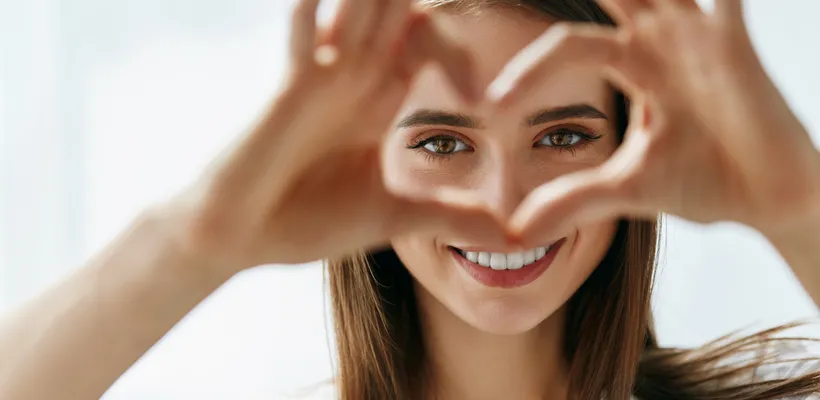
Published: 4th November, 2022 in: Health Advice
Your eyes are one of the most important parts of your body, as they have a direct connection with your brain and help you to process the world around you. Therefore, it’s vital that we make taking care of them a top priority.
Many people fear they will lose their eyesight as they get older, but, there are steps we can take to try and maintain our eye health as best we can. Read our simple guide and find out how you can reduce the chances of vision loss and help protect yourself from diseases such as cataracts and glaucoma.
Eating a healthy, balanced diet is not only important for your overall health but can make a really positive impact on your eyesight too. Certain nutrients such as copper, omega-3 fatty acids, lutein, vitamin C, and vitamin E are great for boosting eye health and helping prevent age-related diseases.
In order to get these valuable nutrients into your body, you’ll need to fill your plate with the right foods. The best foods for eye health include nuts, leafy green vegetables (like kale and spinach), beef, eggs, water, and citrus fruits. Fish such as salmon, tuna, and halibut are also great for maintaining eye health, as they are high in omega-3 fatty acids.
save £9.06
Buy nowsave £0.60
Buy nowSmoking is not only bad for your lungs, but it can also increase the risk of eye diseases like cataracts and macular degeneration, as it harms the optic nerve. If you’re struggling to quit, you can read our blog on quitting smoking, or speak with your doctor.
save £1.45
Buy nowsave £4.20
Buy nowsave £11.00
Buy nowIt’s important to visit your eye optician regularly. Not only can eye exams determine whether you need glasses, but they can also uncover any underlying diseases, which might otherwise be missed. Some eye diseases may lead to vision loss, so it's important to identify and treat any diseases as early as possible.
Find out your family’s medical history, and see if there have been any eye-related problems in the past. Some conditions may be genetic, such as age-related macular degeneration or glaucoma.
What Happens in an Eye Exam?
Each eye exam can differ depending on your individual needs, but it normally involves a conversation about your vision, followed by some tests with a trained optician.
You may undergo vision tests to check if you're short-sighted, farsighted, or have astigmatism or presbyopia. You may also receive eye pressure and optic nerve tests to check for glaucoma. Routine eye check-ups often don’t last longer than 20 minutes.
Our eyes are sensitive, and prolonged exposure to the sun isn’t healthy. Sunglasses will protect your eyes from UV light, which can have harmful effects on the eyelid, cornea, lens, and retina.
Similarly, safety goggles are an effective form of protective eyewear and are needed for various activities such as certain sports, doing home repairs, and working with dangerous chemicals.
In this day and age, it’s common to spend a vast amount of our time staring at a screen. Whether it’s a computer, TV, or phone - for a lot of us, it’s a big part of our daily life. However, screen time is something we should make an effort to minimise where possible.
Staring at a screen for too long can cause a range of issues such as eye strain, headaches, blurry vision, and dry eyes. Rest your eyes by taking a break every 20 minutes, and focus them on something further away.
We all know a good night’s sleep is essential for your mind and body, but it’s also important for your eye health. Lack of sleep and fatigue can leave your eyes feeling sore, irritated, red, and puffy. If you do suffer from a lack of sleep, it's a good idea to place a cold compress over your eyes for ten minutes.
It’s important that you keep your hands clean when touching your eyes, especially if you’re a contact lens wearer. If you do wear contacts, make sure you wash your hands before taking them out and putting them in every time. You should also disinfect the contact lenses and change them regularly. For more information, take a look at our contact lens care guide.
Exercise is a great way of maintaining eye health as well as improving your overall fitness. Your eyes need oxygen to stay healthy and comfortable. Cardiovascular exercises such as aerobics can lower pressure in your eyes, and help to protect the retinal ganglion cells. Exercising is also known to reduce your blood pressure, and high blood pressure is associated with glaucoma.
The importance of eye health cannot be understated, and it should be something we all look to achieve. By following our eight steps on how to keep your eyes healthy, you will be able to minimise the risks of some eye diseases and work towards improving your overall health.
At Weldricks Pharmacy, we offer a range of eye care products that you can add to your bathroom cupboard, including ointments, gels, eye drops for allergies, eye drops for dry eyes, eye masks, and solutions for dry and itchy eyes.
You can browse and shop our products online or head to your local pharmacy.